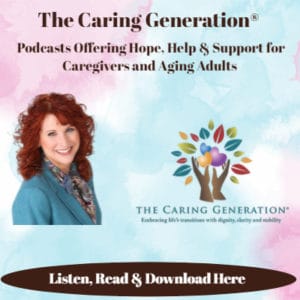Making Health a Priority
 How important is making health a priority? Or is health prioritized only after chronic diseases, sickness or pain occurs when it may be too late?
How important is making health a priority? Or is health prioritized only after chronic diseases, sickness or pain occurs when it may be too late?
Many of my friends and colleagues report a preference for a quick death rather than lingering for years with a chronic disease that robs one of the enjoyable aspects of life.
But why arrive at the point of leading a long sick life if you can make health a priority and choose to live an abundantly active and happy life?
Learn how to make different choices about your health by making health a priority.
Avoiding Sickness and Pain
What would you choose? Choosing between death or a long sick life may be a decision that can’t be made until severe illness or the effects of an accident present themselves.
If you were diagnosed with cancer or a condition that required lengthy and intensive treatment, chemotherapy, or radiation, would you choose to allow your life to end or pursue treatment that may result in living a long sick life?
My parents were adamant about not being exposed to life-extending treatment. They and my sister were blessed with quick deaths.
My father went into the hospital for routine treatment and failed to wake up the next morning. My mother succumbed to sepsis a couple of weeks after surgery and died in a matter of hours. My sister’s death was unexpected and sudden, the result of a car accident.
If all of your life you have been healthy and active and some event tossed your life upside down, how would you cope physically and mentally?
Making Health a Priority
Having more control over end-of-life decisions is something that many people say they want. So how can individuals become more knowledgeable earlier in life about their health and the consequences of the decisions they make today that will eventually affect end-of-life care?
The only way for making health a priority is to seek health education as early as possible. This means becoming interested in health while in grade school, high school, or as soon as you become aware of the links between health, health education, routine medical care, and preventative care.
If you work in the healthcare industry, stress the importance of learning about and being proactive about health in your family, with your friends and colleagues. Become an inspiration to others through your actions.
Chronic illnesses can be diagnosed as early as the 30s and 40s leading to a long sick life. Why suffer from illnesses if you can be healthy?
Making health a priority can be the difference between choosing death, a long sick life, or a long healthy life. Hereditary plays a part but is not the main determinant as many individuals might believe.
Identifying Changes in Health
Changes in health result from:
- A diagnosis that worsens over time like heart failure, dementia, diabetes, or Parkinson’s
- Sudden changes in health like experiencing a heart attack or stroke
- Fractures or physical injuries resulting from an unexpected accident
If you are the individual with the health concern or the caregiver how do you learn about choices to manage health conditions and the associated consequences?
Unfortunately, healthcare providers like doctors are not well prepared in medical school to have these conversations unless patients ask specific questions.
If you are a nurse or work in a medical office or other care organization you know about the time constraints for appointments and accomplishing all of the work that needs to be done. Share your knowledge and experience with close friends and family.
Achieving Health Literacy
Health literacy is the ability of individuals to obtain, consider, understand and make well-informed decisions about health diagnosis, treatments, and consequences. The burden of increasing health literacy has traditionally been placed on healthcare providers like doctors and nurses.
Making health a priority means that seeking information and gaining knowledge is a personal responsibility. Health literacy means becoming familiar with medical terms by asking doctors and nurses questions about the information they provide.
And if you work in the healthcare industry, health literacy for you is learning about aspects outside of the organization in which you work. This can include Medicare, Medicaid, home health, assisted living, and nursing home support in addition to specific medical conditions associated with the elderly.
Learning to identify the risks and benefits of doctors’ recommendations and treatments is another factor in making health a priority. Inviting a family member or a caregiver to a doctor’s appointment can improve the ability to understand and follow through to take medications or schedule a test.
Supporting Health Management
Many older adults and caregivers benefit from support in managing day-to-day health concerns. What does this mean if you are the patient or the caregiver?
- Can you explain to the doctor the short and long-term consequences of following or not following recommendations after receiving this information from the doctor?
- If you fully understand the consequences, are you prepared to make or help a parent make decisions about living a long sick life or making changes in lifestyle to manage or improve a condition?
- If the choice is no treatment, then do you understand how the condition will worsen including how to manage pain or suffering at the end of life?
- If you understand the effects of a health condition like diabetes, are you confident that you know what steps to take to manage the condition?
Asking questions so that you understand the effects of health conditions is critical so that choices can be made about daily life, health, and well-being. If you are a family caregiver it’s important that you know how changes in the health of a loved one will affect the time you will spend in caregiving activities.
Developing Personal Action Plans
Knowledge about health can be situational. Let’s say that you are a caregiver for a parent with diabetes. If so you may be knowledgeable about all of the actions to manage blood sugar and insulin.
But then a parent is diagnosed with kidney disease and information is lacking about the steps to take to manage this condition. In either case, developing an action plan that includes daily routines, processes for emergency situations, and having support mechanisms in place is essential for success.
Making health a priority is essential from the perspective of seeking information and gaining knowledge. Possessing information gives you the ability to hold family discussions about care options to manage ongoing conditions or end-of-life care.
Being Proactive With Health
Health changes with age. Health, sickness, and pain are life experiences that result from making health a priority.
It’s never too late to begin making healthy choices even if you are diagnosed with chronic diseases. There’s a lot of life to be lived. Make the best of the years ahead by being proactive and increasing health literacy.
Looking for More Tips and Recommendations About Caring for Yourself or Aging Parents? Check Out Pamela’s Online Caregiver Program
©2015, 2022 Pamela D. Wilson, All Rights Reserved.
Return to the Aging Issues & Solutions Category PageReturn to the Professionals All Category Page



